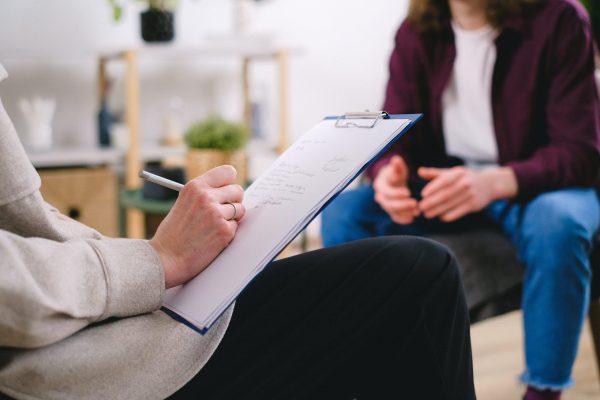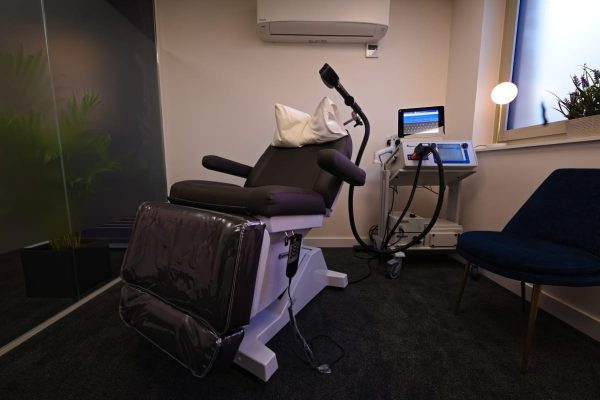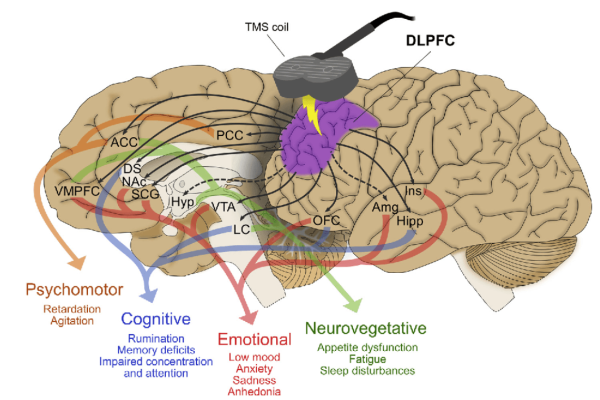rTMS
(repetitive Transcranial Magnetic Stimulation)
Discover non-invasive repetitive Transcranial Magnetic Stimulation (rTMS) at Oxford Brain and Mind for treating depression and migraines.
Contact Us
Email : connect@oxbam.co.uk
Phone: 07922744469
107 Percy St, Oxford OX4 3AD, United Kingdom
Get in touch to discuss your needs, book an appointment, or ask any questions about our services. Reach out via phone, email, or our online form below for a confidential and professional consultation.
Send us a message
Thanks also to Sanjay at Oxford Brain and Mind for dealing so efficiently and sensitively with the administrative side of things.
The assessment itself was thorough but felt relaxed – the clinician made sure I understood each step and answered all my questions. I never felt rushed, and they genuinely listened to everything I had to say, which was such a relief. By the end, I felt like I finally had some clarity and a clear plan for what to do next.
The whole process was smooth, and booking was a breeze too. If you’re considering an ADHD assessment or any kind of support, I highly recommend this clinic. They really know their stuff and made what could have been a stressful experience into a very positive one.
A Safe non-invasive Treatment
A Safe non-invasive Treatment Evidence-based, Effective, medication-free brain stimulation procedure Under the expertise of Dr Sanjay Kumar (Reader at Oxford Brookes University and the Director of Oxford Brain and Mind) who has an extensive scientific background in rTMS research, we are extremely confident of delivering a bespoke rTMS protocol for you taking your schedule and clinical indication into consideration.
Accompanying Dr. Kumar is our Consultant Psychiatrist Dr Tina Malhotra, who offers her clinical expertise and does an initial assessment to conclude whether rTMS is an appropriate treatment option for you.
What is rTMS? Is it safe?
rTMS (repetitive Transcranial Magnetic Stimulation) is a non-invasive treatment for depression, anxiety disorders and various other psychiatric conditions, that has proven to be safe in all clinical trials . The minimal side effects reported with rTMS are short lasting mild headache and mild fatigue.
Due to its non-invasive conduct, it is sometimes preferred over medication; especially in cases where the response to medication is poor, or one has developed intolerances to medication. Depending upon your clinical indication, it can be either used in conjunction with medication and psychotherapy, or as a standalone option.
There are certain conditions where the application of rTMS should be avoided. Your clinician will discuss about the suitability of rTMS with you.
How does rTMS work?
Recent advances in understanding brain based mechanisms in psychiatric conditions have led to significant advancement in treatments directly stimulating the brain, and rTMS has proven to be a very effective tool in that arena.
It uses repetitive pulses of magnetic field to target abnormal brain circuits implicated in psychiatric conditions. Over the course of treatment with rTMS, there is a neuroplastic effect on the brain, which means that it restores and improves the brain’s ability to repair and build new connections between the nerve cells, thereby improving clinical symptoms.
This is nice scientific video from The New England Journal of Medicine talking about the different treatment approaches for treatment ressitant depression. rTMS video stats from around 7 minutes 25 seconds: https://www.nejm.org/doi/full/10.1056/NEJMp2310181
Conditions that can be treated by rTMS
Migraine
NICE provided guidelines for using rTMS in migraine in 2014 for treating and preventing migraine.
rTMS is a non-invasive brain stimulation procedure which can be used in acute and chronic migraine condition.
It aims to not only treat but also prevent migraine (which technically is a neuronal network disorder).
The ability of rTMS to target and condition the brain excitability not just underneath but far beyond the stimulation site makes it an extremely effective treatment.
A meta-analysis study by Mikhail & Juhani (2022- Here from AJPMR) showed positive effect of rTMS on migraine pain severity and attack frequency.
The treatment is easy to execute and has shown promising results in our patients with a significant reduction in pain intensity, frequency and duration of migraine attacks.
OCD
Magventure has CE approval for using rTMS for OCD. (Also for treating addictions and comorbid anxiety)
rTMS’s efficacy for treating treatment resistant OCD has been proven by numerous studies based on randomised controlled trials.
The published reports show 46% patients with treatment resistant OCD reacting positively to the treatment.
At Oxford Brain and Mind, we help you significantly alleviate the OCD symptoms through rTMS.
Depression/Treatment Resistant Depression
rTMS is an effective treatment for all kinds of depression including treatment resistant depression.
NICE, UK included rTMS as a proven treatment for depression in its guidance since 2015, and the studies show it is extremely effective medication free treatment with rapid symptom improvement.
rTMS can also be combined with medication and/or psychotherapy as per your clinical indication.
Maintenance rTMS after the initial course at Oxford Brain and Mind can be continued to support recovery.
Chronic Neuropathic Pain
Evidence-based guidelines on the therapeutic use of rTMS published in 2020 (Article) provide a level A / definitive evidence on the analgesic effect of rTMS.
A meta-analysis involving 589 patients showed that the analgesic effects may last for at least 1 month( Article ).
At Oxford Brain and Mind, we can treat chronic neuropathic pains of various origins with efficacy.
Fibromyalgia
Evidence-based guidelines on the therapeutic use of (rTM published in 2020 (Article) provides a level B /probable evidence on the analgesic effect of rTMS.
At Oxford Brain and Mind, we will asses your symptoms that are possibly stemming from fibromyalgia and recommend rTMS treatment options accordingly.
What do we offer when it comes to rTMS?

Initial Comprehensive Assessment
Consultant Psychiatrist will discuss an appropriate rTMS protocol with you after discussing your suitability and clinical need for rTMS.
For referral to Oxford Brain and Mind for rTMS , please discuss with your specialist Consultant who can refer you to us. For self-referrals, please get in touch with us

Bespoke rTMS protocol
A typical protocol for a full course of treatment entails 20 to 30 sessions over 4 to 6 weeks, ensuring optimal therapeutic benefits. There are other protocols that can be shorter but involve more frequent treatments in a day. Depending upon the clinical need, severity of symptoms, and your personal schedule, we can offer a bespoke rTMS protocol tailored specifically for you.

